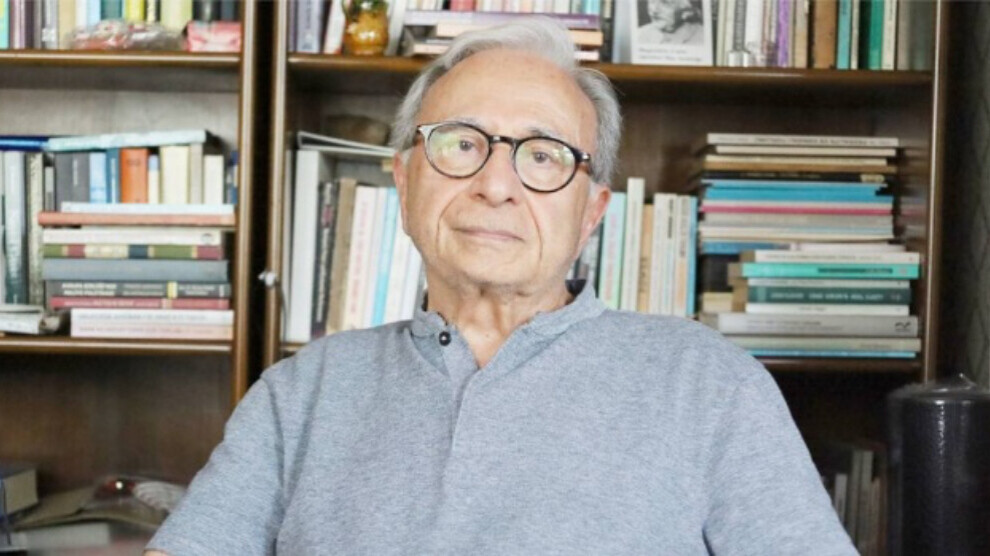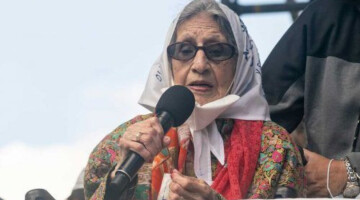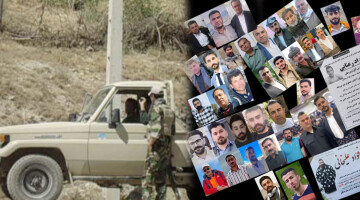A speech delivered by Nationalist Movement Party (MHP) leader Devlet Bahçeli in the Turkish Parliament in October 2024 sparked renewed discussions on resolving the Kurdish question. The debate gained further momentum following Abdullah Öcalan’s “Call for a Democratic Society and Peace” on 27 February.
Professor Dr. Izzettin Önder, one of Turkey’s foremost experts in Marxist economics, spoke to the ANF about how this new process should be approached and which key issues require close attention.
Unity in the first parliament was broken in the second
Professor Dr. Izzettin Önder stated that the core of the Kurdish question lies in a long-standing pattern of denial. He explained: “The central issue of this complex matter is that, for many years, it has either been partially ignored or outright denied. As a result, it has not been seriously addressed, and has instead been suppressed, leading to great suffering on both sides. It is a problem that has persisted until today. I see the current intention to approach the issue with the aim of resolving it as a commendable beginning. I believe every possible effort must be made along this path. Let us hope that all parties take the necessary steps and reach a meaningful and lasting outcome that would bring significant gains for both sides and contribute to peace and calm in the Middle East.”
Önder noted that after the collapse of the Ottoman Empire, nearly all the communities formerly under Ottoman rule established their own states, except for the Kurdish people. With the founding of the Republic of Turkey, Kurds were pushed into the background. He continued:
“If we look back briefly, especially to the imperial period, the Turkish and Kurdish peoples lived together as brothers. However, with the founding of the Republic and the transition from the imperial system to the nation-state and unitary structure, a series of sociological problems began to emerge. This was due to the fact that continuing the old system was no longer feasible. During the dissolution of the empire, almost all of the communities formerly under its rule established their own states. The Kurdish people were the exception. Yet they demonstrated their loyalty as citizens by fully devoting themselves to the liberation of the homeland and the achievement of independence.
The unity that had existed in the First Parliament was transformed into a 'Turkish nation' identity in the Second Parliament following the War of Independence. This shift, rather than being merely a condition for establishing a nation-state, became a justification for the unitary state structure. It remains a subject of historical and legal debate. Unlike a federal model, the unitary state structure promoted a 'national' identity as a principle, which in practice led to policies such as linguistic and educational uniformity under administrative unity. These policies were naturally perceived as exclusionary—and indeed functioned as such.”
Use of force by state authority contributed to the erosion of friendship
Önder noted that the provincial administration system, which had been in place during the Ottoman Empire, was abolished with the foundation of the Republic, and that this led to various problems. He stated:
“The abolition of the provincial governance system that had existed during the imperial period inevitably led to political friction and, unfortunately, in some cases, brought the state and the people into direct confrontation. The open or covert involvement of certain foreign states, using human rights as a justification, has created serious obstacles in establishing a stable unitary system. The occasional use of force by state authority in response to resistance against the unitary structure and centralized rule has also played a significant role in the erosion of the long-standing friendship between peoples.”
Transition to the nation-state and unitary system eroded friendship among peoples
Professor Önder observed that the transition to a nation-state and unitary structure in Turkey marked the beginning of the erosion of intercommunal friendship. He stated: “With the shift to a nation-state and unitary administrative system, the dominant and exclusionary ideology of a still-developing capitalist model played a central role in the erosion of intercommunal friendship. This separation has varied depending on levels of economic development. In western regions where economic development was achieved, communities blended more easily, while in underdeveloped regions the distinctions remained more pronounced.”
Önder explained that the differentiation in income levels, a consistent feature of capitalist systems, led to lower-income individuals being employed in harsher jobs and worse conditions. He continued: “It must be emphasized that although Kurdish citizens may have suffered disproportionately from this separation, they were not the only ones subjected to negative treatment. Economically disadvantaged Turkish citizens also experienced similar conditions. This phenomenon should be understood as internal exploitation during the primitive accumulation phase of capitalism, in a context where there were no external sources of exploitation.”
Certain conditions must be met for a lasting resolution
Önder emphasized that for the new process to be lasting and successful, specific conditions must be created. He stated: “Although several attempts have been made in the past, each ending in failure, I believe that the success of this new initiative or resolution process, which is hoped to produce a lasting outcome, depends on the following conditions:
- problems and proposed solutions must be clearly explained to the peoples on both sides, and efforts must be made to build public consent.
- If some issues cannot be resolved under the current unitary system and may instead require a federative or even a confederative structure, then such a new administrative framework must be carefully designed and openly presented to the people.
- If no new administrative structure is planned, then issues inherent to the unitary system, such as language unification or standardized education, especially the matter of mother tongue education, must be clearly addressed.
- In our country, which has undergone late capitalist development, the legal and administrative guarantee that all citizens will be treated equally during the process of primitive capital accumulation must be ensured, and the public sector must take the lead in setting an example.
- An atmosphere of mutual agreement must be established between citizens in both the public and private sectors without regional or linguistic discrimination. Whether it is agreed to operate under multiple languages, as in Switzerland, or to accept a single national language, such decisions must be embraced with sincerity, declared openly to all parties, and given legal protection.”
Genuine outcome requires honesty between parties
Önder concluded by underlining that the success of the process depends on a sincere approach by all parties, free from deception and outside interference: “The only way to achieve a lasting solution is under conditions where the parties do not deceive one another and where the influence and pressure of imperialist powers, who hold grand ambitions in the Middle East, are absent. Only then can we create the foundations for a life of brotherhood, where people can share both hardship and joy, and where the pain that has been endured for so many years can finally be relieved. Whether the capitalist system and the unitary nation-state model are maintained, or a federal system is adopted in its place, the real question is how the desired conditions for life will be secured. Let us hope for a permanent resolution and let us see how such a difficult process will be managed and to what kind of result it will lead.
In short, the resolution of this deeply wounding issue depends on the structure of the economic system, the question of the nation-state, whether a unitary or federal state framework will be adopted, the pressure that imperialist powers may exert in the context of the Middle East, and most importantly, on the sincere intentions and efforts of the parties involved.”














